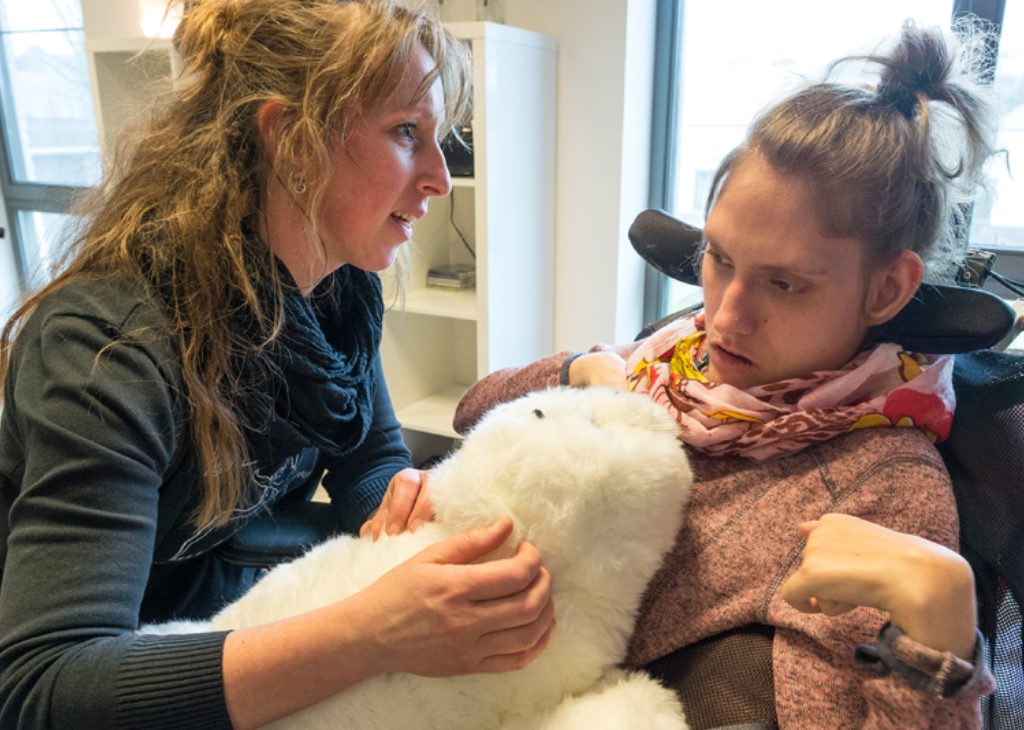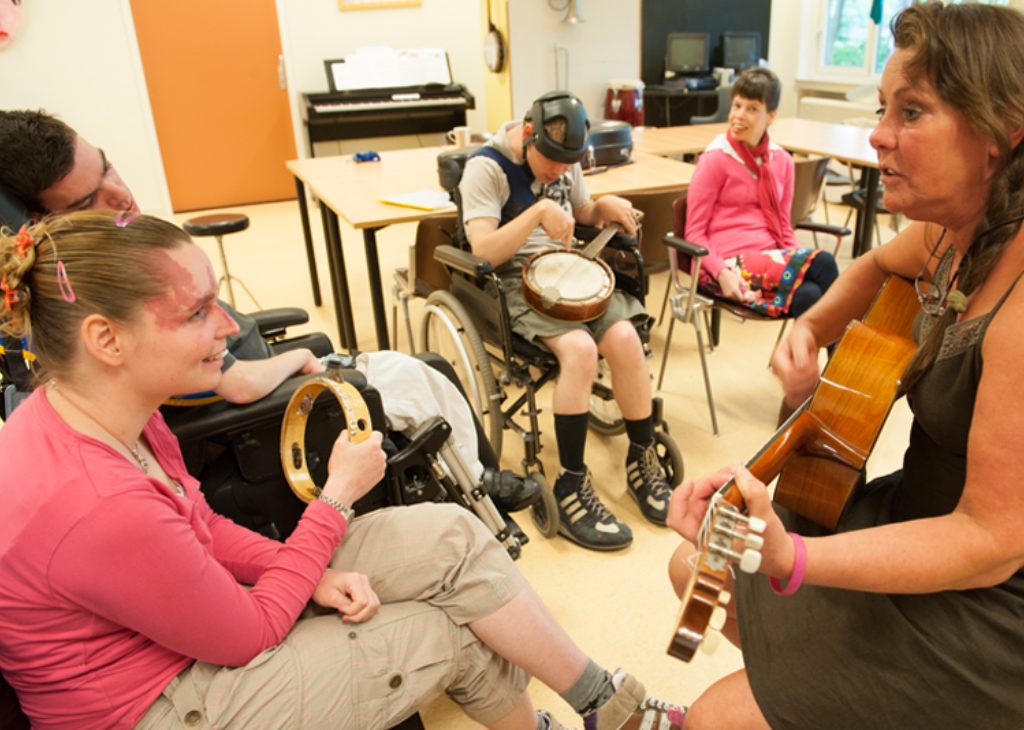Residents benefit directly from science
In the past years, the scientific activities of the Center for Residential Epilepsy Care have shown a fast increase and a qualitative broadening.
Residents directly benefit from the results of research activities. Currently, our researchers work on the following themes:

Genetic research: looking for the cause
In the treatment of epilepsy in combination with an intellectual disability, genetics play a prominent role. Patients with an intellectual disability are unable to indicate what is wrong with them. This forces doctors to use another way of examining, diagnosing, treating and evaluating.
Once they know what type of syndrome the patient has, they can anticipate the symptoms that are part of that syndrome. But this requires knowing what the problem is. Of most residents of the Center for Residential Epilepsy Care we know the cause of their epilepsy and intellectual disability.
Osteoporosis: Safety first
Neurologist dr. Kim Beerhorst, now employed at the Zuyderland Medisch Center, obtained her doctorate in 2015 with a thesis on the occurrence and prevention of osteoporosis in people with epilepsy.
People with epilepsy are prone to fall. There is a chance they hurt themselves. With osteoporosis that is the result of years of using AED’s, there is a larger chance of osteoporotic fractures. A better insight in low bone mineral density and its treatment directly contributes to the safety of people with epilepsy.

Relation epilepsy, intellectual disability and behavior
Relatively many people with epilepsy and an intellectual disability also suffer from mood and behavior problems. The relation between these phenomena keeps many professionals occupied.
A question often asked is: do we see epilepsy or behavior in a patient? How do we treat this?
Sleep: a study of hidden problems
Little is known about sleep disorders in people with an intellectual disability – and epilepsy. Recently, this theme is given more attention.
This is one of the reasons why the Center for Sleep Medicine at Kempenhaeghe has a sleep clinic for people with an intellectual disability. In addition, doctoral research is ongoing into sleep and the daily sleep problems of residents of the Center for Residential Epilepsy Care.